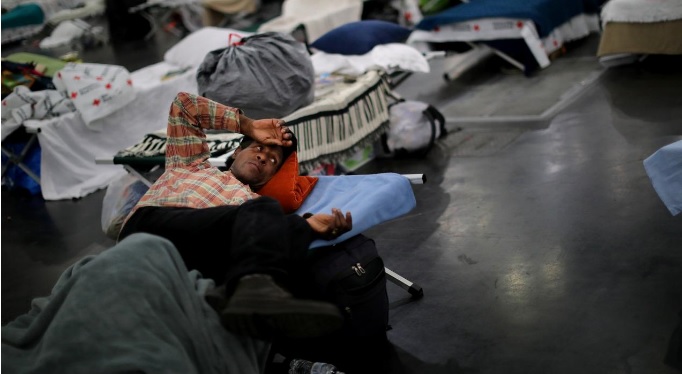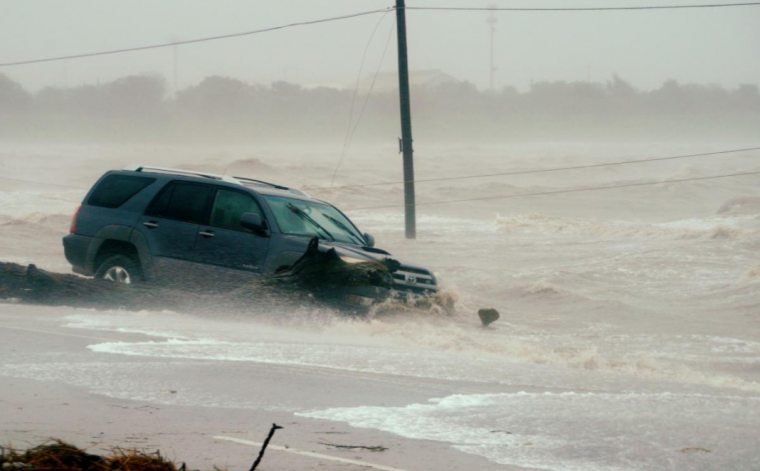Hurricane Harvey churches awarded taxpayers' money in major policy change
Churches providing aid after a disaster will now be eligible for US taxpayers' money in a major reversal of policy and an apparent win for conservative pastors.
In revised guidance the Federal Emergency Management Agency (FEMA) announced the change in stance to mean churches can receive government aid despite being exempt from tax. It comes after Donald Trump backed three Texas churches suing the US government for barring them from state funding following the Hurricane Harvey flooding.

FEMA is part of the US Department for Homeland Security and reimburses organisations who have helped people during or after a disaster.
In an apparent victory for the churches and their evangelical supporters, FEMA published a 200-page updated guide for its funding programme and in the first line said it changed its approach.
'Private nonprofit houses of worship will not be singled out for disfavored treatment within the community centers subcategory of [public assistance] nonprofit applicants,' wrote Alex Amparo, assistant administrator of FEMA's recovery directorate.
The new policy cited a landmark US Supreme Court ruling in Trinity Lutheran Church of Columbia v. Comer where the judges decided a programme that denied a church funding for a playground, while providing similiar grants to non-religious organisations, had committed religious discrimination.
The new policy said: 'In light of the Trinity Lutheran decision, FEMA has considered its guidance on private nonprofit facility eligibility and determined that it will revise its interpretation of the aforementioned statutory and regulatory authorities so as not to exclude houses of worship from eligibility for FEMA aid on the basis of the religious character or primarily religious use of the facility.'
FEMA's funding programme offers money to organisations that provide a public service. So churches, along with political, athletic, vocational, and academic buildings, have been judged ineligible, particularly groups that sponsor 'religious activities, such as worship, proselytizing, religious instruction, or fundraising activities that benefit a religious institution and not the community at large'.

The churches that sued FEMA following their support for victims of the Hurricane Harvey flooding in Texas last year celebrated the change as a victory.
'By finally following the Constitution, FEMA is getting rid of second-class status for churches,' said Daniel Blomberg, an attorney with Becket, a leading legal group that defends religious liberty, according to Christianity Today. 'We will watch carefully to make sure that FEMA's new policy is implemented to provide equal treatment for churches and synagogues alongside other charities.'
Senator James Lankford, an Oklahoma Republican and Southern Baptist pastor, added: 'Just like charities, houses of worship that serve our communities and are impacted by natural disasters like Hurricanes Harvey and Irma should not be disqualified from disaster assistance simply because they are religious in nature.'











